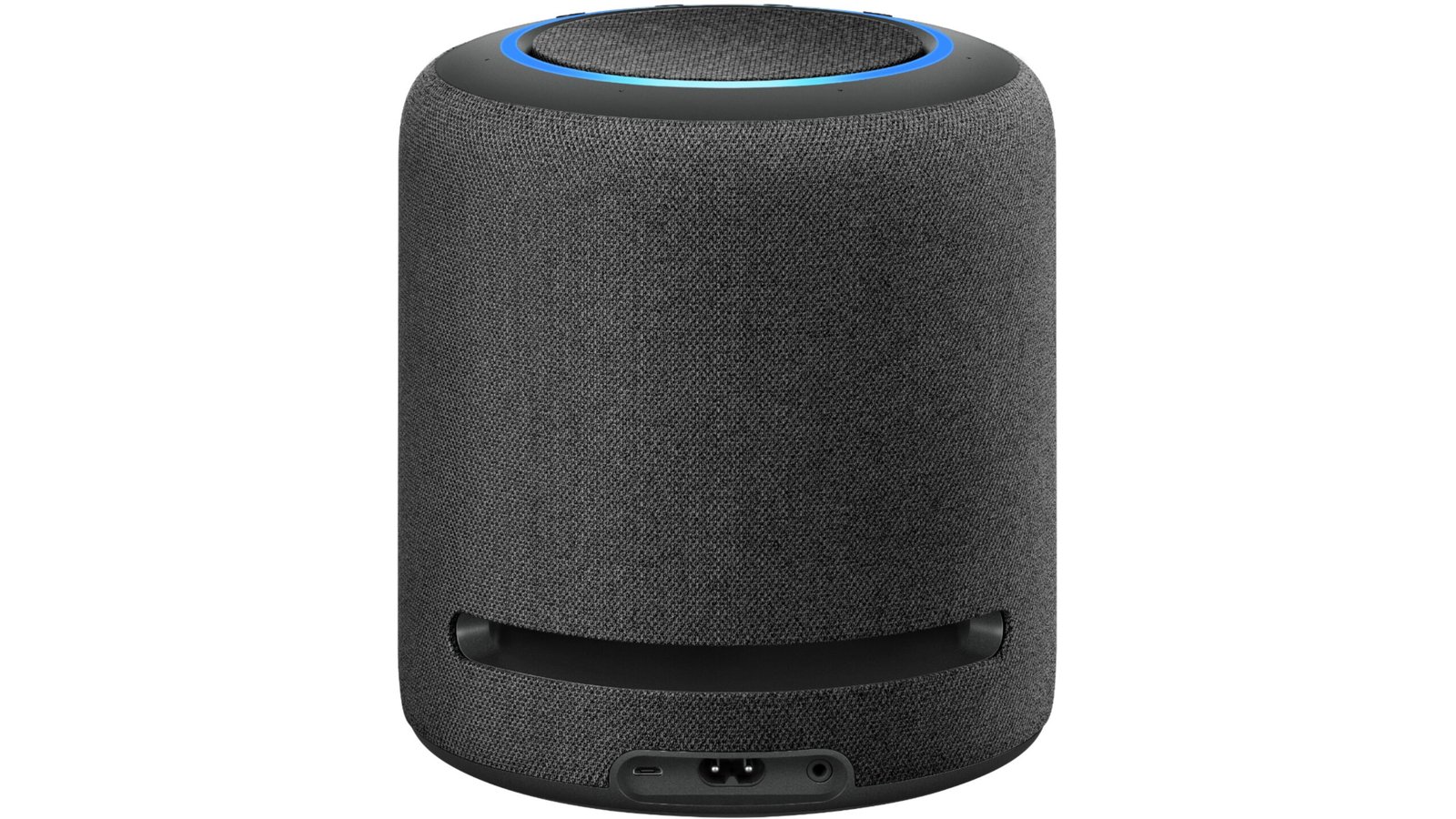Table of Contents
The best smart speakers can only offer audible responses to your queries, unlike the best smart displays that feature a screen and can serve up visual interpretations as well. However, smart speakers come in both mains-powered or portable options with a rechargeable battery so you can take it on the go, whereas smart displays are only mains-powered.
Although if there’s no Wi-Fi connection close by, these portable smart speakers do require mobile data, usually accessed via a Bluetooth connection to your smartphone, for the voice assistant to work.
Smart speakers can also be used as an intercom in your home – great for telling the kids dinner is ready – as well as offering the ability to make audio calls to friends and family, too. They can even be used to get some of the best smart home devices to work together.
If you have some of the best smart lights or smart plugs in your home, you can issue one command to the smart speaker to ensure they switch on or off at the same time. Alternatively, smart speakers can double as a chime for the best video doorbells or home security cameras, playing a tone to alert you that motion has been detected or the doorbell has been pressed. Some even allow you to converse with anyone in the camera’s field of view too.
Smart speakers from Amazon and Google are always heavily discounted on Black Friday and Cyber Monday. Not only can the price be slashed by as much as 50%, but they’re often bundled with smart home devices or access to music subscription services, making them even better value. We expect to see the same substantial savings again this year.
If you want to get a smart speaker for the best price possible then hanging on until Black Friday makes sense. You can also get a heads up as soon as the deals start appearing by visiting our Best Black Friday Amazon Echo deals round-up. However, if you want to ensure you’ve got your smart speaker before the festive period, we’d recommend snapping up a deal now. The supply chain issues that are being faced globally mean shipping times are taking far longer than usual.
There’s a wide array of smart speakers on the market, with a number of models in the Amazon Echo and Google Nest ranges alongside Apple’s HomePod, and as we’ve already mentioned, designs from audio brands including Bose and Sonos. We’ve put the most popular options to the test, rating them on sound quality and voice assistant smarts, to identify the best smart speaker you can buy right now.
The best smart speaker 2021
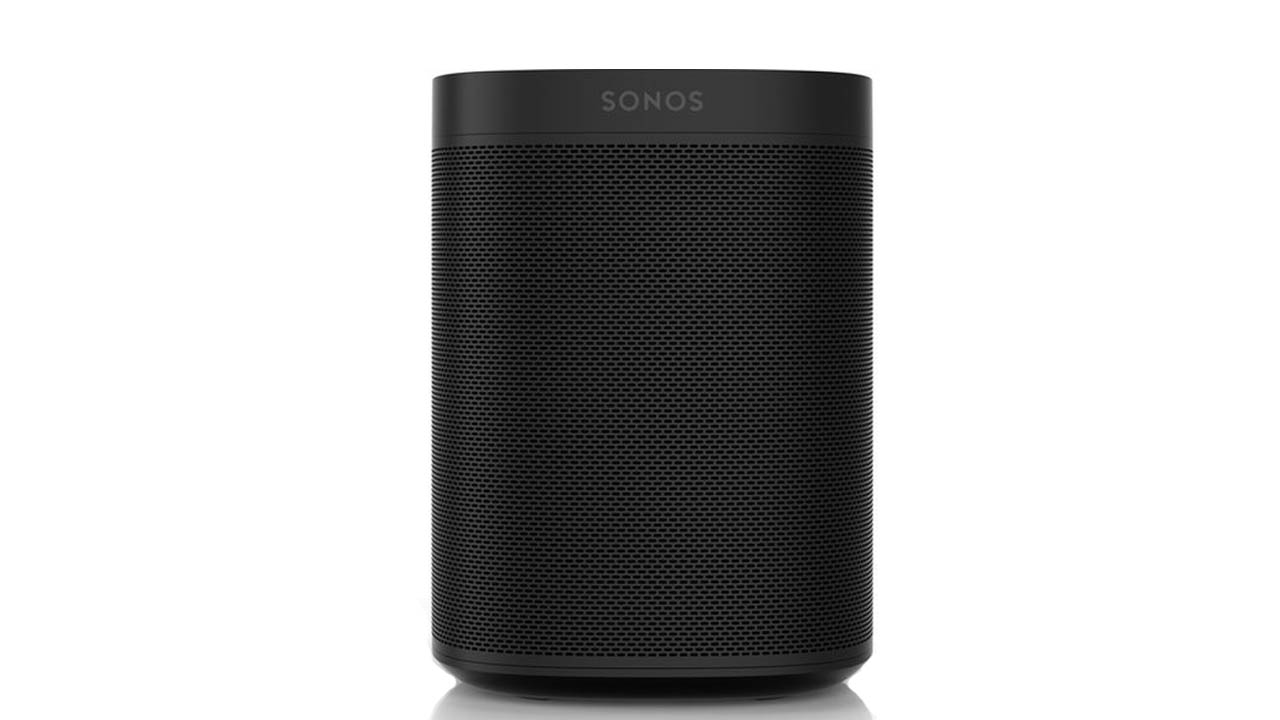
Sonos’ debut smart speaker is the best you can buy right now, in our eyes. A cleanly designed, feature-rich, and great–sounding device, it can be used with either Alexa or Google Assistant and thanks to AirPlay 2. With it, the Sonos One can talk to Siri and form a multi-room pairing with the Apple HomePod or Apple HomePod Mini.
On test, we were also impressed with the mic array, which ensured our voice was picked up, even from the other side of the room. However, this is an expensive smart speaker when compared to the rest of the market.
If you feel a bit tied down by the Sonos One, be sure to check out its portable cousins, the Sonos Move and the Sonos Roam, which are both excellent options for those that want to take their tunes on the move.
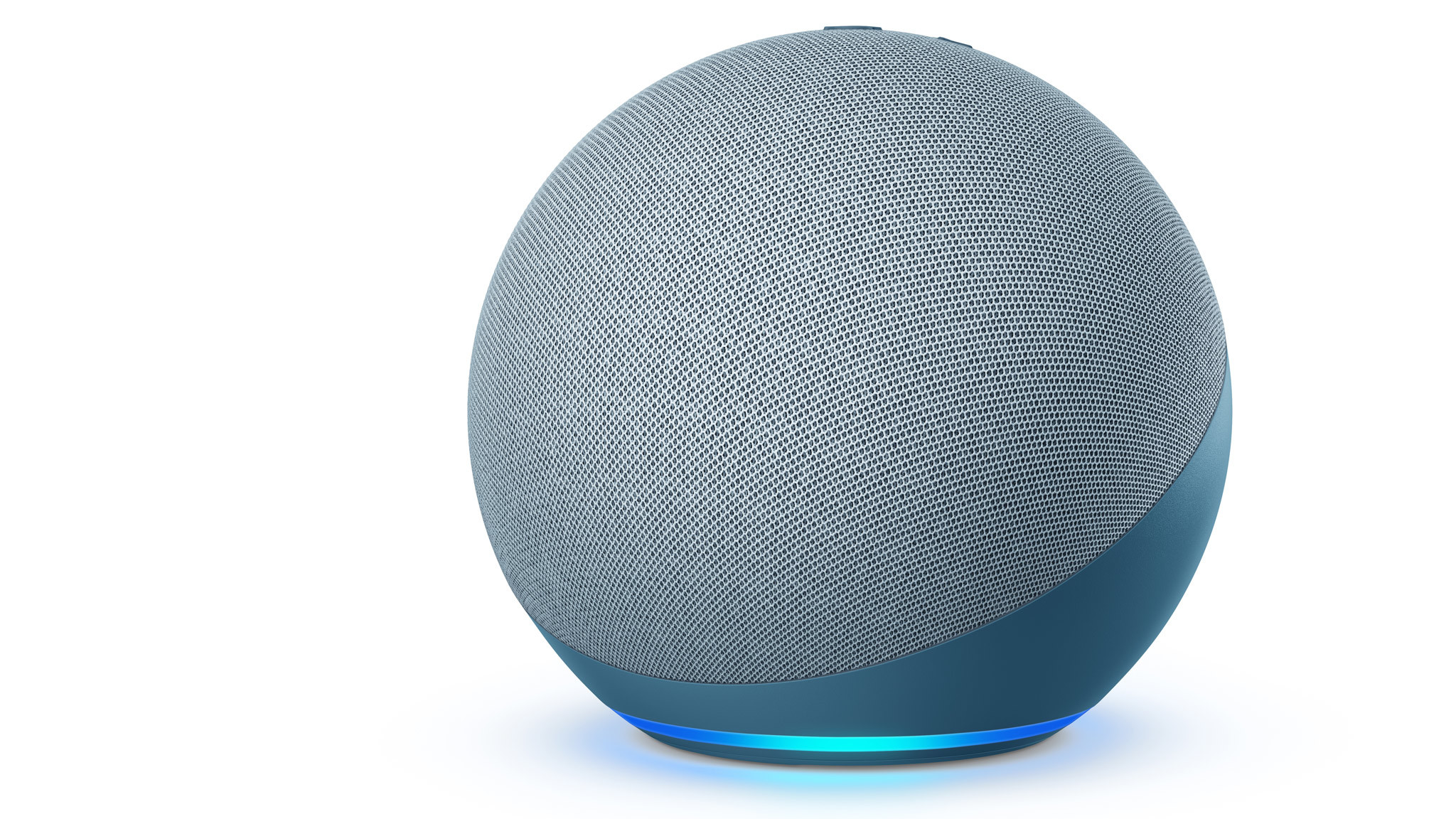
The latest spherical Amazon Echo is complete revamp of the company’s flagship smart speaker, and the aesthetic overhaul, while impressive, is just the half of it: with improved audio, a built-in Zigbee smart home hub, and a new AZ1 neural edge processor that will reduce the time it takes for Alexa to respond to commands, it’s a complete makeover.
So are there any negatives? Not many, really. The Echo’s only real issues are that its max volume level is a bit soft, especially compared to larger smart speakers like the Apple HomePod and Google Home Max, and that Amazon remains a rather insular company, limiting the technology that’s compatible with its speakers.
That means you won’t be able to cast audio to the Echo the way you can with the new Google Nest Audio, and you’ll have to use Bluetooth any time you want to connect to your phone.
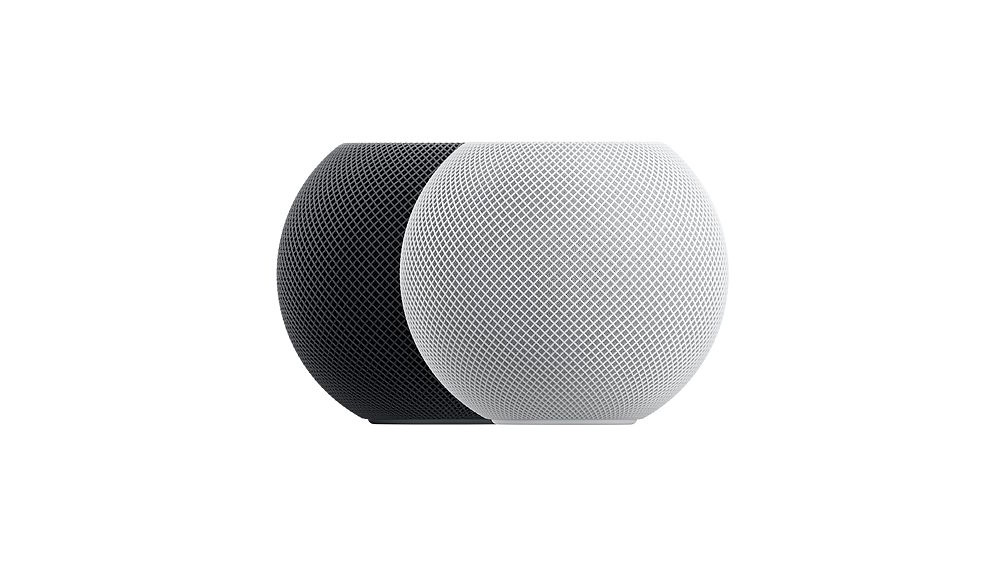
For anyone looking to enter the Apple smart ecosystem, or who has an Apple Music subscription, this is the smart speaker to go for. It’s far cheaper than some might expect, packing mighty sounds and an elegant design for under $100 / £100 / AU$150. It’s also the only smart speaker on the market with Siri built-in, as Apple discontinued the bigger HomePod in early 2021, and stocks are no longer available.
However, if you don’t have an Apple Music subscription, you’re rather limited when it comes to music streaming. You can’t ask the HomePod mini to play anything through Spotify – that can only be enabled through AirPlay and requires using your phone rather than the simpler method of asking Siri to play tunes with your voice.
There’s also a much smaller number of compatible smart home devices that work with the smart speaker, compared to the range available for Alexa and Google Assistant-enabled smart speakers.
For us, the audio performance is the key reason to buy the HomePod mini. It’s excellent for a speaker that’s so small, and it really feels like the right mix of price and sound quality. The bass isn’t too heavy, vocals aren’t lost in the mix, and when you pair two minis the stereo experience is really immersive.
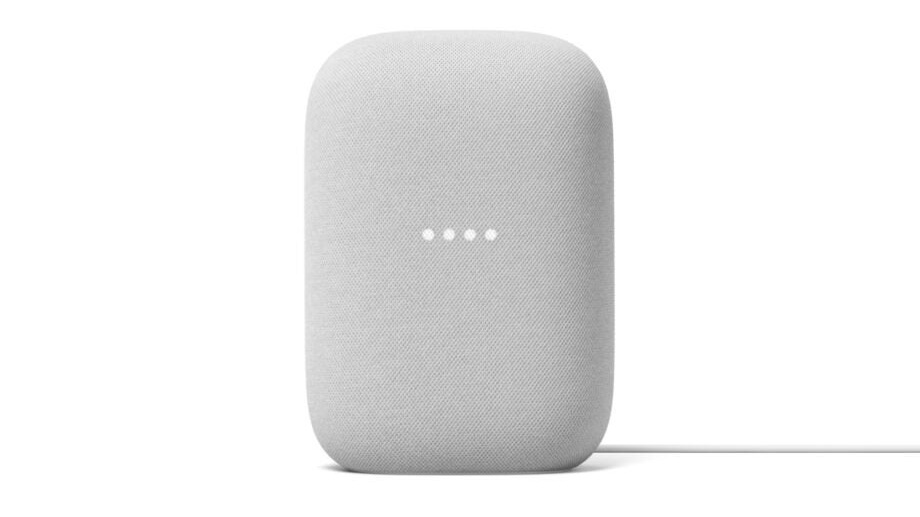
If you’re looking for a smart speaker with Google Assistant built-in, the Google Nest Audio is currently the best Google-manufactured smart speaker you can buy, since the brand discontinued its Google Home Max speaker.
It picks up our commands with ease, and Google Assistant is quick to respond, all of which are loud and clear. The subtle and unassuming design also blends in well with home decor. It’s also a surprisingly intelligent smart home hub.
It already hooks into some of the largest platforms now available by including Nest, Philips, and Samsung’s SmartThings – however, there’s no built-in Zigbee hub as with the latest Amazon Echo.
However, as a speaker, the Nest Audio is a little disappointing and the sound quality doesn’t really live up to our expectations. It sounds just fine with uncomplicated pop music, but other genres reveal a lack of detail in the treble and mids that make tracks lack sparkle and sound muffled.
Read more: Google Nest Audio review
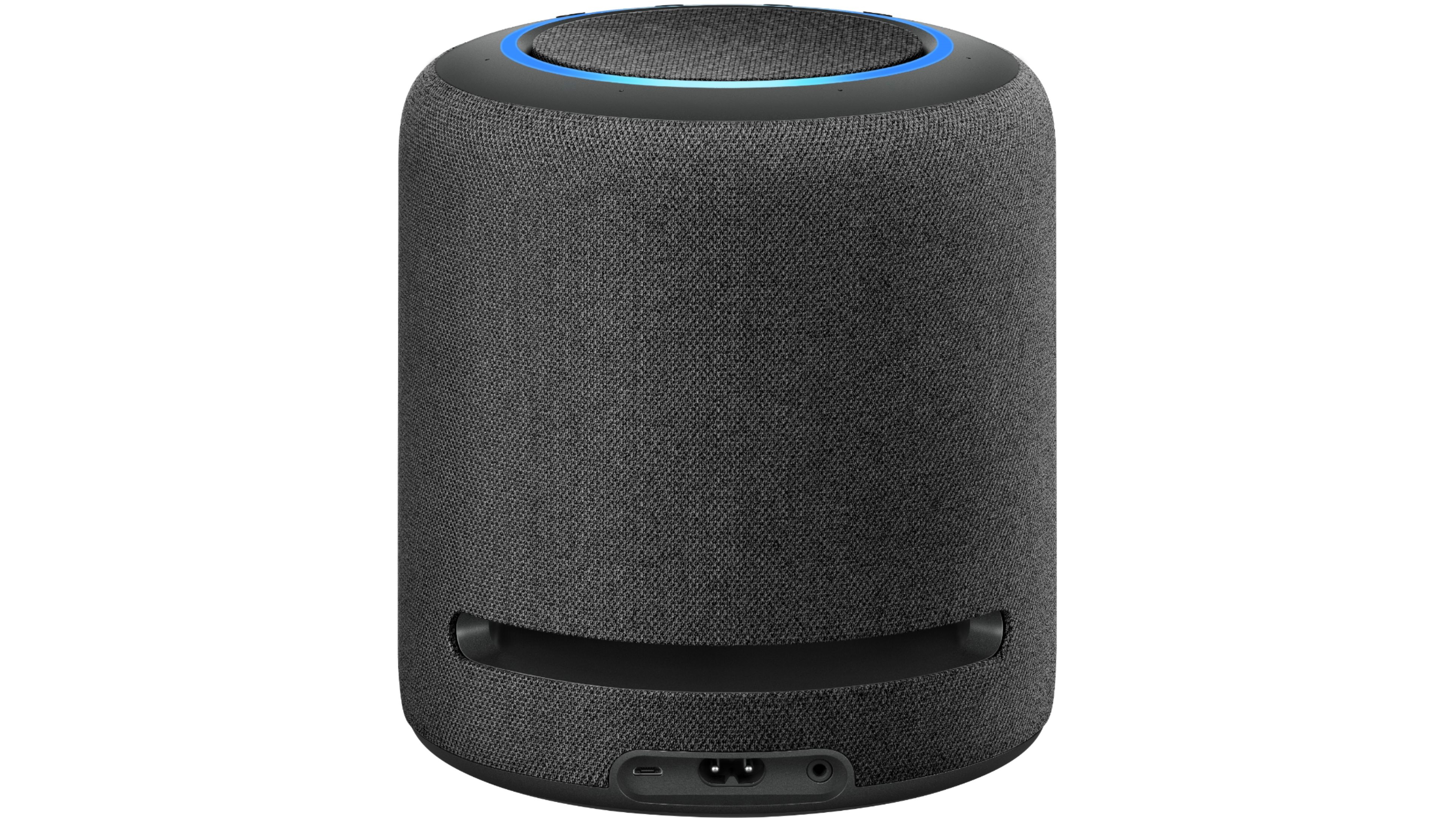
Amazon’s first high-end smart speaker for home cinemas is its best-sounding Echo so far. One of the most powerful speakers you’ll find for the money at 330W, buy two Amazon Echo Studio speakers and you can set them up in the Alexa app to create an immersive home cinema system.
It’s seriously impressive, and for those that want a smart speaker to control their smart home devices, it doubles as a Zigbee hub too. However, to get the best from it, you’ll need to subscribe to Amazon Music HD and the large size won’t suit all.
That said, it’s certainly more affordable than similar speakers from rivals such as Sonos.
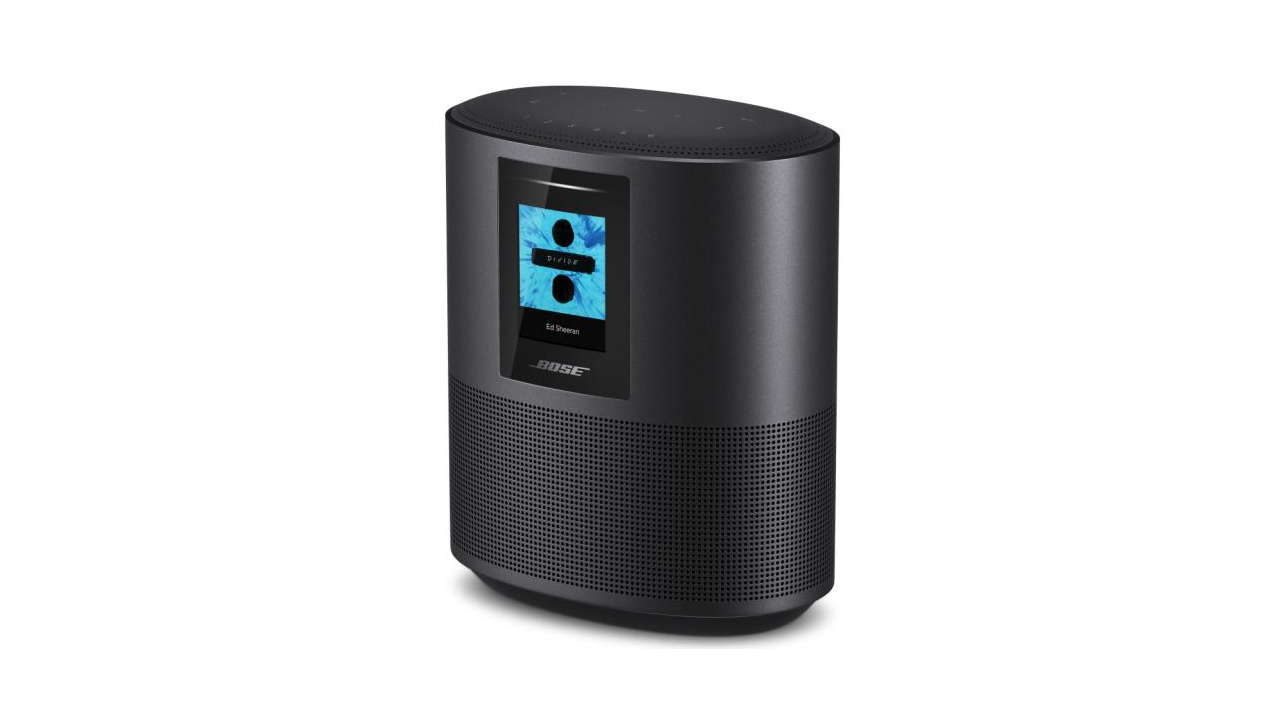
If you’re searching for the best-sounding smart speaker, stop searching. With Google Assistant and Amazon Alexa built-in, the sleek anodized aluminum Smart Speaker 500 has the smarts alongside room-filling sound and an elegant design.
An eight microphone array, designed for near and far-field listening, lets you talk to Alexa or Google Assistant even when music is playing loud. We also loved the preset buttons that offer one-touch access to your favorite playlists, radio stations, or albums.
However, setting the speaker up on a Wi-Fi network using the Bose Music app is harder than it should be, and it’s one of the most expensive smart speakers on the market. Although if you’re an audiophile, it’s worth every penny.
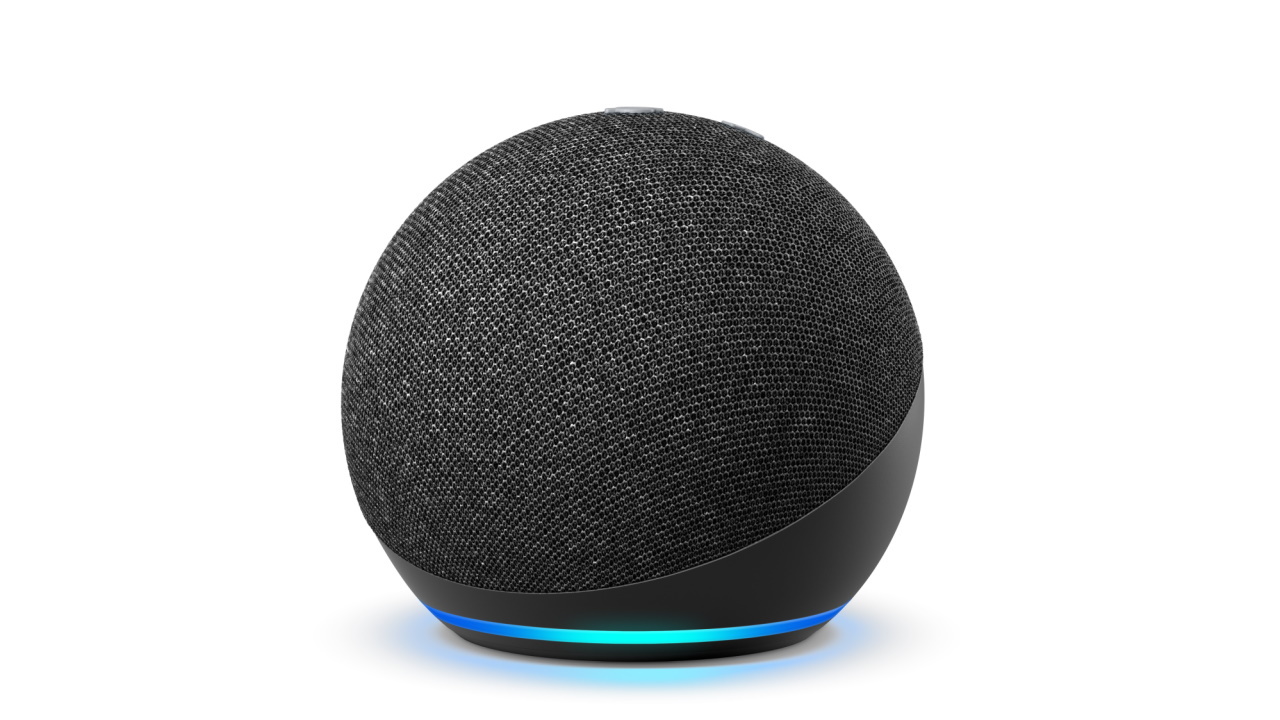
The Amazon Echo Dot has always been the best option for those who aren’t sure about smart home tech and want to take the first step. It provides a place for Alexa to live inside your home and packs in enough sound performance to fill a room. All that for under $50 / £50 / AU$80 and it’s easy to see why it’s long been one of the most popular smart speakers on the market.
Its got the same space-age aesthetic as its bigger brother, the Amazon Echo (2020), which looks stylish and is certainly a change from the previous Echo Dot design, and on test, we found it extremely easy to set up and use.
However, you won’t find a Zigbee hub inside, unlike its more expensive sibling and the affordable price tag does mean that while the sound can fill a room, it’s directional and shallow.
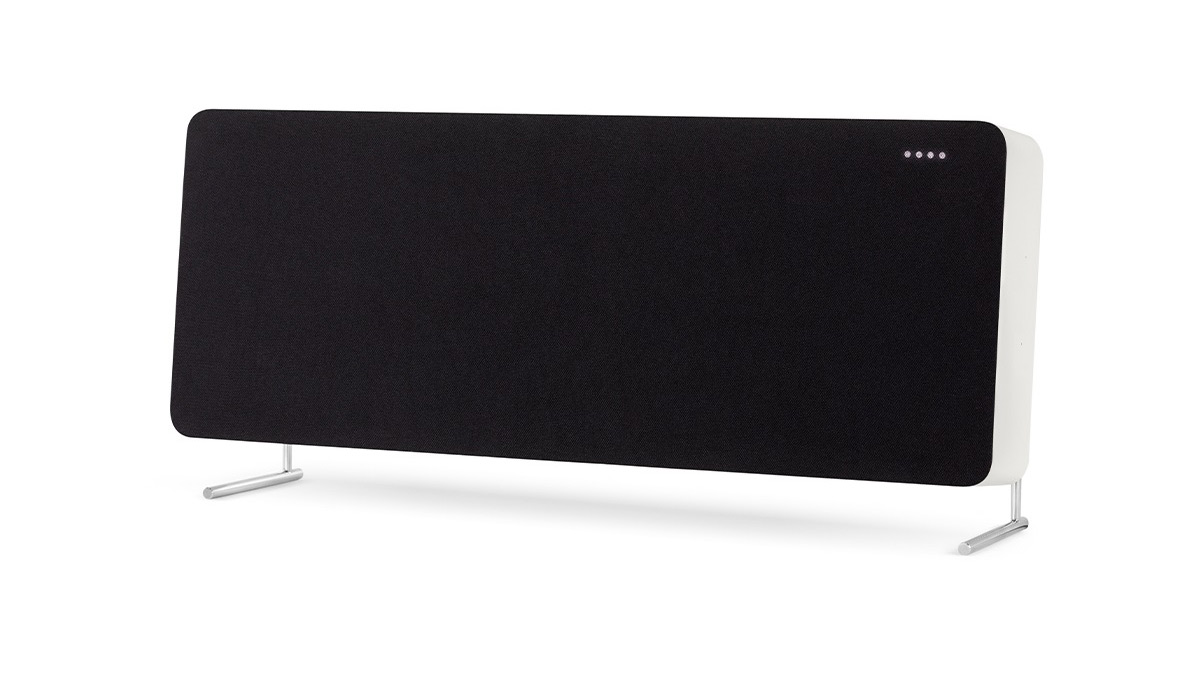
A re-imagining of the iconic minimalist LE1 speaker from 1959, the Braun LE01 not only offers retro styling but also sounds great and has Google Assistant built-in too – making it the perfect modern update.
Simple to use, the Braun LE01 offers a premium built quality along with AirPlay 2 and built-in Chromecast so if you have either of these smartphone platforms, you can stream to it without having to compress music.
It’s an expensive speaker and it is lacking. On test, we found the app basic, and there’s no HDMI or optical audio so it can’t be connected to your TV set-up. That said for those that want style and substance, it’s worth considering.
How we test smart speakers
To discover the best smart speakers on the market, we assess the sound quality of the speaker and how effective the built-in voice assistant is at controlling playback for you; from selecting specific playlists, albums, and tracks to adjusting the volume, skipping tracks, and even the number of streaming service its compatible with.
We also evaluate each model on its ability to pick up your voice when issuing commands to the voice assistant, privacy features that help ensure the smart speaker isn’t constantly watching and listening, and the smart home devices it’s compatible with, as well as how compact and durable the design is.
What to consider when buying a smart speaker
Next, consider where you intend to locate the smart speaker; smaller, more compact smart speakers are best suited to bedrooms and kitchens, for setting timers when cooking, while larger smart speakers work in rooms with bigger footprints such as a lounge or dinning room.
If you intend to use the smart speaker as your main listening device, make sure you consider the number of speakers, and the sound output and quality they offer. Those with smaller speakers are best suited to background music, while larger smart speakers will offer a louder, more room-filling sound. Also, look for models that can be paired together to create stereo sound if you’re planning to use a smart speaker as part of your home cinema set-up.
What is a smart speaker used for?
Smart Speakers can even be used for light entertainment in the form of jokes and games and also allow you to stay in touch with friends and family by making audio calls through the device.
If that wasn’t enough, a smart speaker can also control compatible smart home devices; for example it can dim or brighten any smart lights you have in your home, turn the temperature up or down if you have a smart thermostat and let you converse with anyone at your doorstep by connecting to your video doorbell.
Which voice assistant is best?
On the whole that’s subjective. Some people have always liked Apple products the best and stay loyal to Siri. Others really like Alexa after snapping up an Echo as soon as the smart speaker was first launched.
The general consensus seems to be that Google Assistant is, largely, the most accurate voice assistant. If you’ve got a lot of Apple products, of course, Siri is the best and for overall compatibility, you’re best opting for Alexa. But they’re not hard and fast rules.
Is Alexa better than Google?
For starters, the choice might depend on which speaker you like the look of the most. Sure Amazon’s Echo range is very similar to the Google Home, but the Show, Spot, and Dot look quite different – check out our guide to the best Alexa speakers for more information.
When it comes to the smart assistants within the speakers, they’re both extremely capable. Amazon’s Alexa has many, many Skills, which set it apart from the rest. But Google has been a leader in the AI game for a long time now, well before the smart speaker market emerged. It’s a lot harder to change Alexa’s voice, too.

